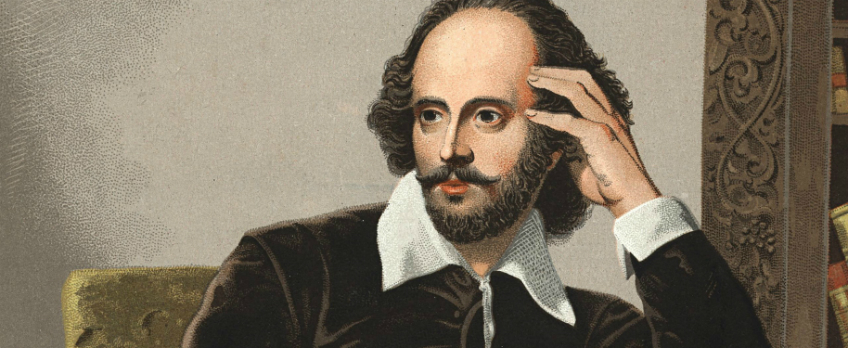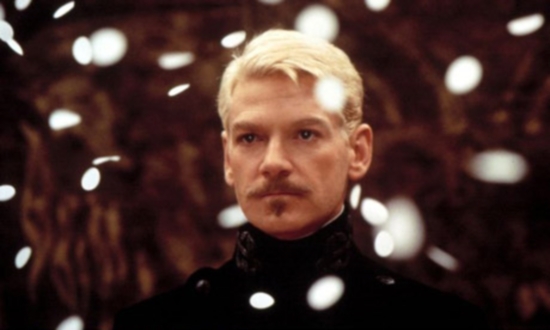Five Questions for Adrian Wootton

Presented by MIFF 37ºSouth Market & Accelerator, Adrian Wootton returns exclusively to Melbourne for another series of his acclaimed Illustrated Film Talks, this year focusing on the rich screen legacy of William Shakespeare, who died 400 years ago and is the most filmed author ever with his works having inspired hundreds of screen productions.
We have a chat to the former director of the London Film Festival, British Film Institute and the UK’s National Film Theatre, and the current CEO of Film London & The British Film Commission ahead of his talks at MIFF 2016.

This is the 6th consecutive year you’ve presented your Illustrated Film Talks series with 37ºSouth & Accelerator at the Melbourne International Film Festival. What keeps you coming back?
It's a great pleasure and a privilege to return again to Melbourne. 37ºSouth, Accelerator and MIFF are important international creative and cultural events and I find participating in them enjoyable and rewarding especially with such a great team of people organising the events and such responsive and enthusiastic audiences.
This year, you focus on the substantial screen legacy of William Shakespeare. From the perspective of a film culture professional, can you tell us about your own personal feelings on Shakespeare and how you tackled the 400th anniversary?
I was born near Shakespeare's own birthplace in Stratford Upon Avon and was taken to see plays there from an early age. I also saw Shakespeare Movies, especially Olivier's Classic adaptations on British TV when I was a child and loved them. And pretty much throughout my life I have been fascinated by the filmmakers drawn to adapt Shakespeare all over the world and have had the opportunity meet many of them and present their work. So, as this important anniversary approached, it seemed natural to look at how I could be part of the commemoration of this incredible legacy.
It was a question of looking back at the fantastic films that have been made and the great artists involved and also looking forward as well to explore how and why Shakespeare remains so much part of contemporary Global culture; hence developing the documentary All The World' A Screen with our friends at BBC Arena and Film London commissioning new short animated and live action works from emerging film makers (all to be shown exclusively in Melbourne with my lectures as part of my visit) and, indeed, writing this series of talks for my Melbourne vist.
Even in the earlier days of film, Hollywood’s interpretations of Shakespeare’s work have sometimes been received with mixed feelings. Why do you think these productions so often struggled with successful film adaptation?
I believe that some people think that Shakespeare on film is a contradiction in terms and certainly at its least interesting you get flat filmed theatre, manly because people haven't properly exploited the potential of cinema to bring a fresh exciting and accessible perspective to adaptation. In truth, it was difficult both in the era of silent film and early sound film to make Shakespeare truly filmic (as it was too theatrical and staged with no naturalistic acting, too precious and in awe of the material) and it really wasn't until Olivier came along and made Henry V in 1944 that he managed to crack the code and make make something that was absolutely faithful to Shakespeare but it was also a real movie.
Popular, contemporary works with looser Shakespearean narratives such as The Lion King, and 10 Things I Hate About You have been executed much more playfully compared to the plethora of traditional adaptations. How do you see future cinema adaptations approaching the work?
Some of the most interesting and inventive Shakespeare films in recent years have indeed been ones that aren't afraid to experiment to be bold, daring and playful and what is so remarkable about Shakespeare is his elasticity. You can, if imaginative enough, make radical versions of Shakespeare but somehow the core themes still shine through. Hollywood did this with Shakespeare in the 1950s and 1960s (which I describe in one of my talks). This is of course evident not just in English language films but some of the wonderful films coming out around the globe from Kurosawa onwards and, in more recent times, in Bollywood, especially in the films by director Vishal Bhardwaj, which I explore in my World Cinema talk.
One of your talks focuses on the illustrious career of Shakespearean actor-director Laurence Olivier. What was it that set Olivier apart from so many other actors and directors in the realm of Shakespeare, and what can filmmakers and actors today learn from Olivier?
A star and director, Laurence Olivier was perhaps the greatest actor of his generation. He acted and directed Shakespeare in theatre, film and TV and his work was so original that he influenced countless performers and directors. He was the first to really succeed in making Shakespeare accessible to everyday movie-going audiences - in particular his great trilogy of Shakespeare films: Henry V, Hamlet (which was the first British film to win the Best Picture Oscar) and Richard III. These films changed the perception of what was possible for Shakespeare in the cinema and inspired others to attempt it. Olivier took from his theatre experiences to feed into his films whilst also recognising that acting had to be different in front of the camera from performing to a live audience and he learnt to adapt his own acting style to succeed as a film actor. I remain convinced that Olivier is a shining example of imagination, dedication and commitment to the work of Shakespeare and realising it in the best possible way that filmmakers and actors can still learn from.
Tickets are on sale now for Adrian Wootton Talks Shakespeare presented by MIFF 37ºSouth Market & Accelerator.